Interdisciplinary international lecture Series (Ringvorlesung)
The KH Freiburg welcomes international speakers to its Interdisciplinary International Lecture Series.
15 speakers, 15 different topics – and various perspectives from experts in social work, inclusive education as well as health sciences from all over the world. This is what the Interdisciplinary International Lecture Series is all about.
How do people cope with crises of different kind? What challenges do social work, health science and inclusive education face in different parts of the world? And which perspectives are there concerning different age groups?
The lecture series will give answers to these questions and beyond.
We are very honored to welcome guests from various countries:
Brazil, Cambodia, Georgia, Norway, Ukraine, United Kingdom, USA, Portugal, Spain, Switzerland, and Tansania.
The lecture series is open to attend for all interested students and members of KH Freiburg. Everybody is very welcome to attend. either single lectures or the series as a whole. Students from SAB may add these lectures to their „Fleximodul“, 6.5.1. International Students may add an examination to gain 4 ECTS.
Registration to single lectures is not required.
The Interdisciplinary International Lecture Series is organized by teaching staff of KH Freiburg and the QISS-project for internationalization which is funded by the DAAD (German Academic Exchange Service).
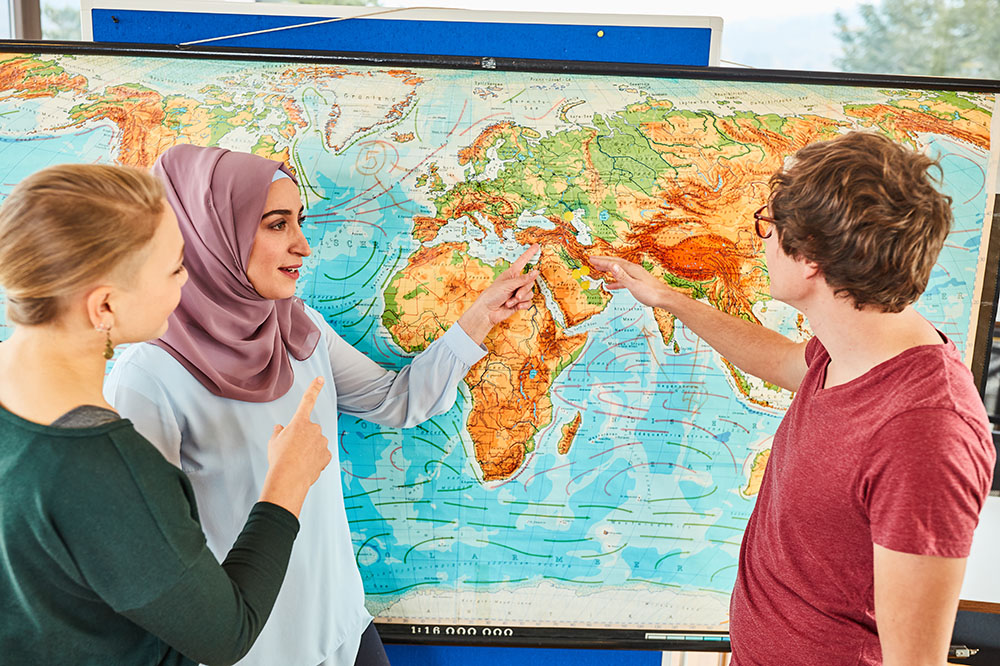
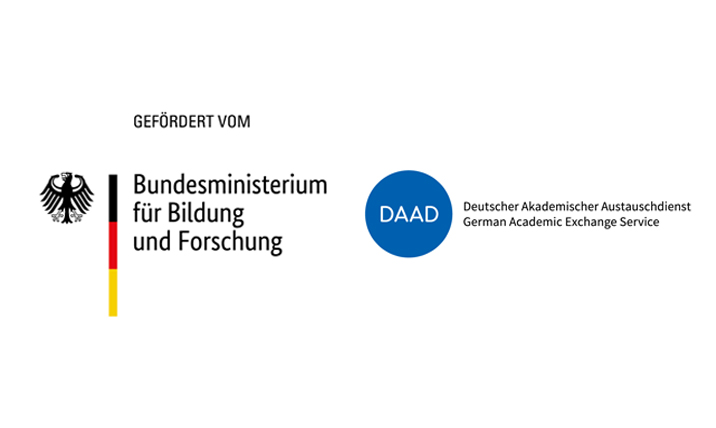
Program
24th of October 2023, 5:30 p.m., Alfaview Conference Room Belchen (01)
Gender & Sexual Identity Development Across the Lifespan: Exploring Contemporary Understandings and Implementing Best Practices. [Online-Lecture]
Speaker: Dr. Benjamin Toubia, USA, The Chicago School of Professional Psychology
Lecture Content
While cultural and educational differences lead to varied approaches toward understanding identity, certain frameworks transcend boundaries. This lecture reviews contemporary understandings of gender and sexual identity development and highlights challenges experienced by queer clients across the lifespan. Gaps in knowledge will be bridged by presenting current frameworks, guidelines, and best practices to assist professionals in understanding and empathetically working with individuals exploring their gender and sexuality. By gaining a multifaceted perspective on identity and being equipped with comprehensive guidelines, attendees will be able to pro-vide enhanced professional support for individuals in their identity journey.
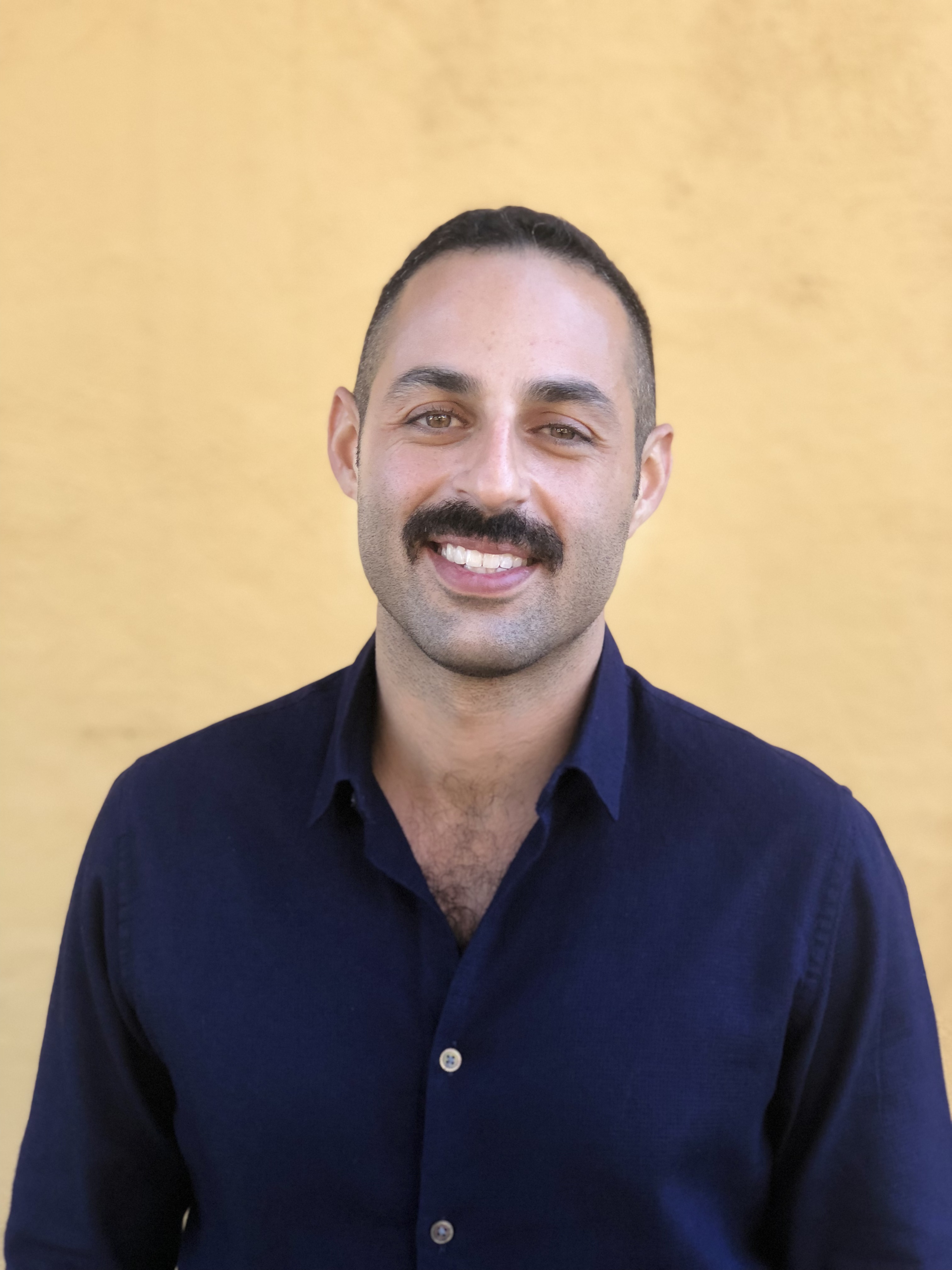
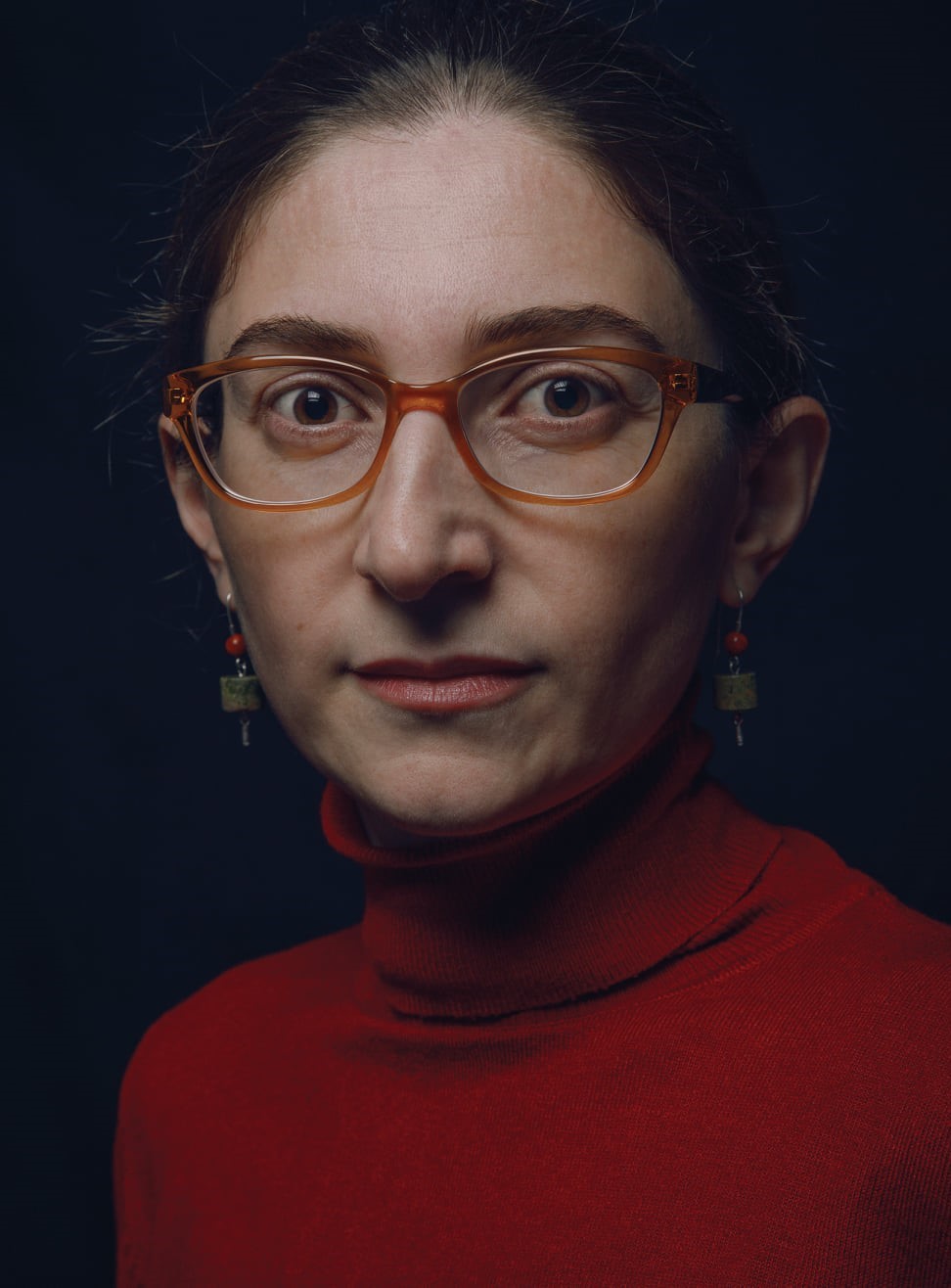
26th of October 2023, 2:00 p.m., Aula 1000
Macro-level social work practice in Georgia
Speaker: Dr. Salome Namitcheishvili, Master of Social Work, PhD; Georgia, Tblisi State University.
Salome Namitcheishvili has a PhD in Social Work from Tbilisi State University (2016) in Georgia, and is a graduate with a Master of Science degree in Social Work from Columbia University in the city of New York (2003). She has 20 years of experience supporting the development of social work in Georgia through policy, administration, research, and direct work practice with various stakeholders, including the government, NGO community, and service users. Her main fields of expertise pertain to social work systems development, mainly focusing on developing education and training in the social field.
Lecture Content
Dr. Salome Namitcheishvili’s lecture will focus on social work macro practice. It will explore how Georgian social workers are engaged in macro practice to respond to a social problem to support and empower people in need. Social work is a new profession in Georgia with 20 years of history. Pioneer social workers in Georgia who were educated in America got back to Georgia at the beginning of the 2000s and engaged in fostering the development of a new profession. This was a response to severe poverty and children’s rights violations in big residential institutions as well as challenges facing many other vulnerable people as a consequence of collapsing all the social systems after the breakup of the Soviet Union.
Macro activities go beyond individual interventions but are often based on needs, problems, issues, and concerns identified in the course of working one-on-one with service recipients. Macro practice is an intervention that brings a change in organizational, community, and policy arenas. In today’s world, macro practice is rarely the domain of one profession. Rather, it involves the skills of many disciplines and professionals in interaction. The social work perspective on macro practice in the case of Georgia will be shared with the lecture participants.
26th of October 2023, 3:45 p.m., Aula 1000
Immigrant Adaption and Psychological Wellbeing: The Case of Three EU Countries
Speaker: Assoc. Prof. Dr. Ia Shekriladze, Georgia, ILIA University. Ia Shekriladze holds a PhD in Psychology from ILIA State University and studied Psychology and Social Work in Tblisi and New York. Moreover, she is a Licensed Clinical Social Worker (LCSW). Since 2018, she acts as Associate Professor/Senior Staff Scientist at ILIA State University in Tblisi, teaching courses on Mental Health and Mental disorders as well as Motivational Interviewing and Foundation of Psychology.
Lecture Content
Migration and culture change have been widely researched as circumstances that may pose risks to mental health of individuals. Studies have reported elevated levels of depression and anxiety among migrant populations. Evidence also suggests that some strategies of acculturation are linked with better adjustment outcomes, while others are associated with poorer mental and behavioral health. My study examined adult Georgians (N=504) residing in three EU countries (Greece, Italy, Germany) and explored associations among their demographic, sociocultural and personality characteristics, cultural orientations, and mental health outcomes. Conducted via electronic self-report survey, the cross-sectional study measured participants’ levels of home culture orientation, host culture orientation, self-efficacy, psychological and sociocultural adjustment, depression, anxiety, and life satisfaction, along with the perceived history of discrimination, history of being undocumented, age and length of relocation, fluency of host language and other demographic variables.
Home culture and host culture orientations were measured by Vancouver Index of Acculturation. Self-efficacy was measured by General Self-efficacy Scale measuring individual believe that one can perform a challenging task or cope with adversity. Depression was measured by Center for Epidemiologic Studies Depression Scale. Anxiety was measured by Generalized Anxiety Disorder Inventory, and Life Satisfaction was measured by Satisfaction with Life Scale. Sociocultural adjustment was measured by the Sociocultural Adjustment Scale measuring individual’s sense of adaptation to various life domains. Psychological adjustment was measured by the Brief Psychological Adaptation Scale measuring individual’s positive and negative emotional responses to the host culture. Perceived history of discrimination was measured by a Likert-scale question about the perceived sense of being discriminated against in a host country.
The results showed that host culture orientation was linked with better mental health outcomes than home culture orientation: host culture orientation predicted life satisfaction and negatively correlated with depression and anxiety, whereas home culture orientation predicted depression and anxiety, and was negatively linked with life satisfaction. In addition, depression was positively predicted by histories of discrimination and illegal immigration, and was negatively predicted by sociocultural adjustment. Psychological adjustment was positively predicted by sociocultural adjustment and fluency in host language, while the perceived sense of being discriminated against and poor financial state acted as negative predictors. Finally, sociocultural adjustment acted as the strongest determinant of better mental wellbeing predicting both lower depression and higher psychological adjustment.
The findings demonstrated the key role of sociocultural variables and host culture orientation as well as self-efficacy in immigrants/sojourners’ adaptation and psychological wellbeing thereby emphasizing the advantage of an integrated, wholistic approach to be taken by the host countries. Our data suggests that policy-makers and practitioners working with the immigrant populations should prioritize measures aimed at facilitating migrants’ smooth integration and sociocultural adaptation via providing them with the support in various life domains.
31th of October 2023, 2:00 p.m., Aula 3000
Aus dem Nebel des Krieges - Die aktuelle soziale Situation in der Ukraine von außen betrachtet [in German]
Speaker: Kateryna Mishchenko, Literaturwissenschaftlerin, Essayistin, Verlegerin und Übersetzerin aus Kiew; aktuell Fellowship am Wissenschaftskolleg zu Berlin
Lecture Content
tba
7th of November 2023, 5:00 p.m., Aula 1000
War trauma and creative development of the psyche – Experiences with the impact of war in Ukraine and strategies of coping?
Speaker: Assoc. Prof. Dr. Iryna Semkiv, Ukraine, Catholic University Lwiw
Lecture Content
The outbreak of war becomes a challenge for the body and psyche of Ukrainians who have not had the experience of living during war. Looking at this experience from a certain perspective, it can be seen as arousing a destiny wherein creative potentials within the individual are activated and unprecedented ways of solving new life tasks are developed for which the psyche has not been prepared during childhood. War forces the psyche to choose between living in traumatic non-existence (the “old present,” according to M. Wilkinson or “the unthought known” according to Ch. Bollas) or, following the "Way of the Cross," of unlocking the creative potential of the psyche—its creative source—which leads not only to the mental death of old unuseful but well-known and safe patterns (as I will discuss) but also to the resurrection of deeply rooted subjectivity in overcoming the challenges of life that were unknown before. The lecture will present the main ideas of trauma theory from a psychoanalytic point of view, with reference to the neuroanatomical roots of war-induced trauma. Mythical metaphors of Medusa Gorgon and Athena will be used in the analysis, and artworks painted before and during the war will be presented. The results of some empirical studies conducted during the war will be shown. Coping strategies at the individual as well as collective levels of the psyche will be analyzed.
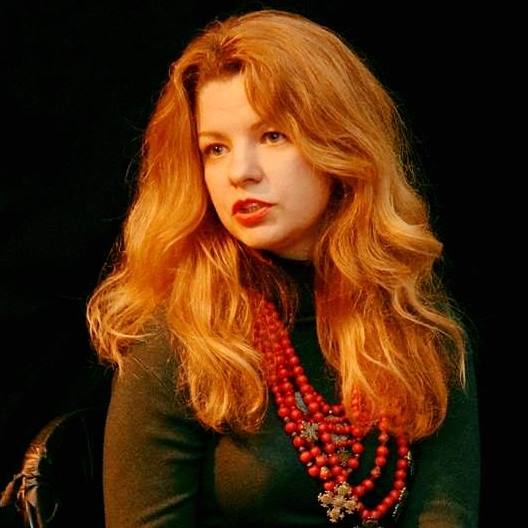
7th of November 2023, 6:00 p.m., Aula 3000
Soziale Fragen und Problemlagen in der Ukraine im Zeichen des russischen Angriffskriegs [in German]
Speaker: Dr. Oxana Matiychuk, Germanistin; stv. Leiterin des International Office an der Nationalen Jurij-Fedkovych Universität Czernowitz
Lecture Content
Der russische Angriffskrieg hat Prozesse ausgelöst, die – global gesehen – sehr deutlich sichtbar, spürbar und erfahrbar sind – auch weit über die Grenze der Ukraine hinaus: Millionen Flüchtlinge, Aufrüstung in der ganzen Welt, Sanktionen gegen Russland, die weitreichende Folgen für Wirtschaften vieler Länder hatten und vieles mehr. In der Ukraine bedeutet der Krieg vor allem Tausende Toten unter den Kämpfenden und Zivilisten, Zerstörung von ganzen Wohnorten, der Infrastruktur und immense Umweltschäden, ebenfalls Millionen geflüchtete Menschen, die in der offiziellen Sprache „internally displaced persons, IDPs“ (inländisch umgesiedelte Personen) bezeichnet werden und in anderen Regionen ihres Landes Zuflucht suchen. Doch was bedeutet der Krieg, wenn man ihn aus der lokalen bzw. individuellen Perspektive betrachtet? Wie leben Menschen, die ihre Existenzgrundlage verloren haben und als Binnengeflüchtete 2000,- UAH (50 Euro) staatliche Hilfe bekommen? Was geschah mit Kinder- und Altenheimen in den besetzten und umkämpften Gebieten? Welche Hilfsorganisationen und Initiativen, einheimische und internationale, gibt es? Welche Wohnmöglichkeiten existieren für Menschen, die sich keine Wohnung leisten können? Was sind z.B. die Folgen für die Unterbringung der Studierenden, wenn ein Wohnheim von insgesamt sechs in eine Massenunterkunft für die IDPs umgewandelt ist? Wie bekommen schulpflichtige Kinder den Schulunterricht – „geht“ man weiterhin in die Schule, die nur noch virtuell existiert, weil Schülerinnen, Schüler und Lehrende über die ganze Welt verstreut sind, oder entscheidet man sich für die Einschulung an einem neuen, relativ sicheren Ort? Wie lebt man, wenn es stundenlang keinen Strom gibt? Wie werden Soldatinnen und Soldaten von ihren Familienangehörigen, Freunden und Kollegen unterstützt und warum die Hilfe des Hinterlandes für die Front unentbehrlich? Was ist mit Kriegsverletzten, die Rehabilitation, Prothesierung und psychotherapeutische Behandlung brauchen? Gibt es Phänomene, die trotz der hohen Widerstandskraft der ukrainischen Gesellschaft sie polarisieren oder gar spalten – z.B. Kriegsdienstverweigerung oder die Einstellung zur orthodoxen Kirche, die eine Verbindung zum Moskauer Patriarchat hat?
Über diese und andere Fragen, zum Teil aus eigener Erfahrung als Freiwillige im Freiwilligenstab der Universität Tscherniwzi und mit konkreten Beispielen, berichtet Dr. Oxana Matiychuk.
14th of November 2023, 9:00 a.m., Aula 3000
Social Work and its challenges in the post-colonial and post-conflict time in Cambodia.
Speaker: Vichheka Nay, Cambodia, Assistant Director for Development Caritas Cambodia
Lecture Content
Social Work and its Challenges in Post-Colonial and Post-Conflict Cambodia. The field of social work in Cambodia has faced numerous challenges in the wake of its post-colonial and post-conflict era. This article explores the unique obstacles that social workers encounter in their efforts to promote sustainable development, social justice, and well-being in the country.
- Rebuilding Trust and Healing Trauma: Cambodia's history of colonization and the devastating Khmer Rouge regime has left deep wounds in the collective psyche of its people. Social workers play a crucial role in facilitating healing and rebuilding trust among individuals and communities affected by these traumatic events. By providing support and counseling services, they help survivors navigate their past and build a hopeful future.
- Addressing Poverty and Inequality: Cambodia still grapples with high levels of poverty and income inequality. Social workers are at the forefront of efforts to address these issues by advocating for fairer policies, implementing poverty alleviation programs, and promoting economic empowerment among marginalized communities. Their interventions aim to create sustainable pathways out of poverty and reduce social disparities.
- Promoting Access to Education and Healthcare: Access to quality educati-on and healthcare remains a challenge in Cambodia, particularly in rural and remote areas. Social workers collaborate with local communities, government agencies, and non-profit organizations to improve access to these essential services. They advocate for inclusive educational policies and work towards enhancing healthcare infra-structure, ensuring that vulnerable populations receive the support they need.
- Combating Gender-Based Violence: Gender-based violence continues to be a pressing issue in Cambodia. Social workers engage in awareness campaigns, provide counseling services, and establish safe spaces for survivors to seek support. They work closely with law enforcement agencies and legal authorities to ensure the protection of survivors and the prosecution of perpetrators.
- Fostering Community Development: Social workers actively engage with communities to identify their needs, strengths, and aspirations. They facilitate community-driven development initiatives, empowering individuals to take charge of their own well-being. By fostering community cohesion and mobilizing resources, social workers contribute to the sustainable development of Cambodia.
In conclusion, social work in post-colonial and post-conflict Cambodia faces multifaceted challenges ranging from healing trauma to addressing poverty and inequality. Through their unwavering commitment and dedication, social workers play a vital role in promoting social justice, well-being, and sustainable development in the country, paving the way for a brighter future.
21th of November 2023, 7:00 p.m., Aula 1000
How connecting with nature through Forest bathing can improve human health and wellbeing.
Speaker: Assoc. Prof. Dr. Kirsten McEwan, Associate Professor of Health and Well-being at the University of Derby, United Kingdom. She is happiest spending time in nature and was pleased to be able to bring together her passion for the outdoors and health and wellbeing research by becoming a Forest Bathing researcher and practitioner. Most of her current research focuses on evaluating the effectiveness of Forest Bathing and making it accessible to wider audiences.
Lecture Content
Forest bathing is a slow mindful nature experience which has been implemented as a preventative public health intervention in Japan. I will describe my research evaluating the effectiveness of Forest bathing in Western adults, adolescents, and adults with mobility impairment and chronic fatigue. I will also share research revealing some of the mechanisms behind how Forest bathing can improve health and wellbeing.
All participants are asked to bring a small natural object (a fallen leaf, pinecone, feather, stone, shell, small piece of wood etc.) with them to the lecture.
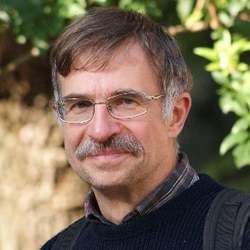
28th of November 2023, 11:30 p.m., Aula 1000
Paulo Freire and the ethics of liberation pedagogy
Speaker: Johannes Doll is a Full Professor for General Didactics at the School of Education of the Federal University of Rio Grande do Sul, Porto Alegre, South Brazil. He is graduated in Catholic Theology (Tübingen) and Education (Universität Koblenz-Landau), has a Specializa-tion in Gerontology (Universität Heidelberg) and hold a master’s degree (Federal University of Rio Grande do Sul, Brazil) and a PhD (Universität Koblenz-Landau) in Education. His research is in the field of Education and Aging.
Lecture Content
The lecture introduces the Brazilian educator Paulo Freire and central ideas of his liberation pedagogy within the background of Brazilian society and history. Although Freire himself did not write his own work on ethics, his work is permeated by a strong ethical claim, the essential features of which will be developed.
28th of November 2023, 2:00 p.m., Room 3102
Integrating Nursing Science, Evidence-Based Nursing and Digital Health: The Future of Nursing
Speaker: Leanne Torgersen, Norway, Østfold University College (ØUC). Leanne Torgersen is a Senior Advisor at Østfold University College (ØUC) in Norway and a PhD student at University of Trier. Among other work experiences, she worked as a registred nurse in the US. A list of publications can be found on Google Scholar.
Lecture Content
This lecture will present how data is objectively observed, how research questions are developed, and how to apply evidence-based nursing (EBN) and nursing research in practice. Perspectives on EBN and nursing research from Norway and the US will be discussed as well as how Digital Health and AI will affect the future of nursing practice.
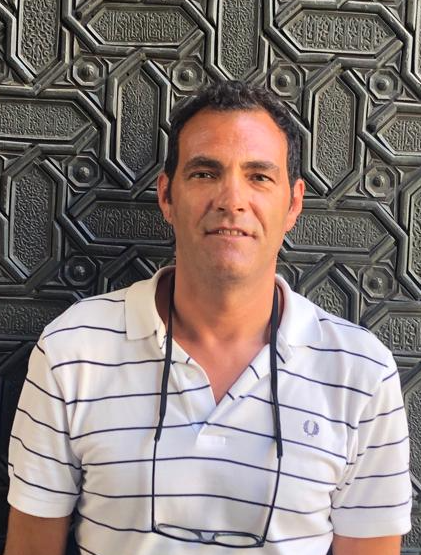
29th of November 2023, 9:45 a.m., Room 3101
Addressing critical health issues in the elderly population of Porto: from loneliness and isolation to cognitive decline and depression. Insights from the 'Porto. Importase' and 'Cycling Without Age' Projects
Speaker: Assitant Prof. Dr. Hélder Alves, Portugal, Porto Institute of Social Work (ISSSP). Assitant Prof. Dr. Hélder Alves holds a PhD in Applied Mathematics and teaches Statistical Data analysis in the Social Work Bachelor’s and Master’s Programs as well as in MSc Social Gerontology, MSc in Social Intervention in Childhood and Youth at Risk of Social Exclusion.
Lecture Content
This abstract outlines various studies conducted within the scope of the "Porto. Importase" project and the "Cycling Without Age" project, focusing on the elderly population in Porto, Portugal. Each study within these projects aims to address critical public health issues affecting the elderly population, including loneliness, social isolation, cognitive impairment, and depression, with the ultimate goal of enhancing the well-being and quality of life of older people in Porto, Portugal.
1) "Porto. Importase" project encompasses several studies:
a) "Development of an ALERT indicator": This study proposes the creation of a com-posite indicator, ALERT, to identify older individuals at risk of social isolation and loneliness. The indicator leverages data from five renowned gerontological assessment tools to facilitate timely interventions.
b) "COVID-19 pandemic and social isolation": This research investigates the potential increase in social isolation and feelings of loneliness among the elderly during the COVID-19 pandemic. Utilizing data from before and during the pandemic, it aims to identify predictive factors of social isolation through multiple logistic regression analysis.
c) "Psychosocial predictors of cognitive impairment": This segment of the project explores the role of psychosocial factors as potential predictors of cognitive impairment in the elderly, utilizing various scales and tests to analyze cognitive impairment, depression symptoms, and social isolation.
d) "Depressive symptoms among the oldest-old": Here, the focus is on understanding the prevalence and sociodemographic contributors to depressive symptoms in individuals aged 80 and above living in social housing communities, using the GDS-15 scale and collecting sociodemographic data through semi-interviews.
2) "Cycling Without Age" project:
"The Portuguese Experience of Cycling Without Age": This preliminary study evaluates the effectiveness of the Cycling Without Age program in reducing loneliness among older people in Portugal. The intervention involves outdoor trishaw rides facilitated by trained volunteers, with the UCLA Loneliness Scale employed to assess the level of loneliness before and after participation in the program.
4th of December 2023, 2:00 p.m., Aula 1000
Entangled Perspectives: Disability, Diversity, and Actor-Network Theory (ANT)
Speaker: Assoc. Prof. Dr. Joan Moyà Kölher, Spain, Universitat Ramon Llull, Barcelona
Lecture Content
This presentation delves into the evolving concept of diversity in the field of disability and raises a crucial debate. In recent decades, the idea of diversity has gained momentum because of its ability to promote symmetrical spaces and reduce the impact of stigma in society. However, this very concept has come under scrutiny for its potential to dilute the political dimensions of difference. In order to shed light on these tensions, this presentation will explore different approaches to disability. Using illustrative examples, it will examine the importance of employing different conceptualisations of disability, ranging from the medical model, to the social model, including the functional diversity model, and culminating in perspectives rooted in actor-network theory. By navigating through these various approaches, the presentation concludes by highlighting the significant contributions that a more symmetrical understanding of ability/disability, closely aligned with the concept of diversity, can bring to the field.
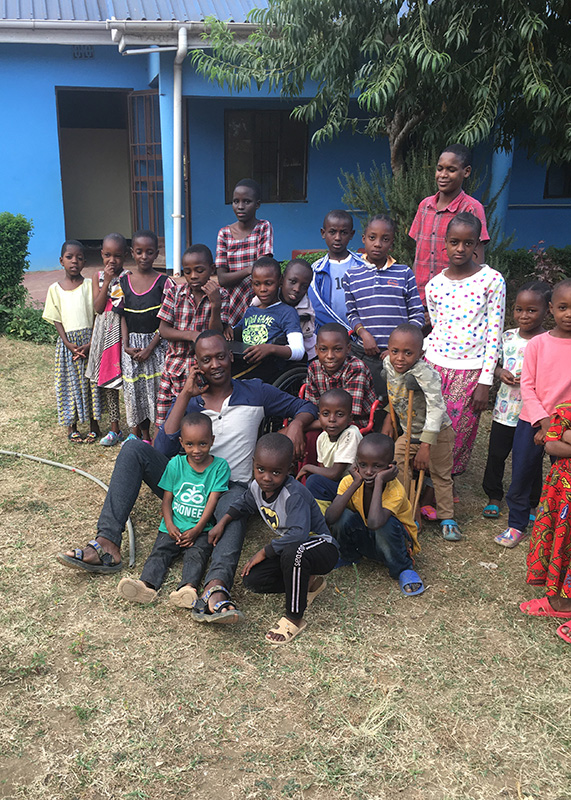
5th of December 2023, 2:00 p.m., Alfaview Conference Room Belchen (01)
Disability in a society between tradition and modernity [Online Lecture]
Speaker: Boniface Mollel, Tansania, Director Engliange`t Primary School
Lecture Content
My name is Boniface Saimon Mollel Director of Engilang'et Pre and Primary School ,which is an inclusive school. Highly motivated with compassion of helping this group of people. Having children with disability , nun disabled ones(from very poor families) and little maasai girls rescued from earlier married. Together with children living with HIV.
Having experience of more than 20 years , living and visiting different rural areas in Arusha, Tanzania. My mother Anna Mollel and a German lady called Elifrieda Stephen was one of the founders of Monduli rehabilitation center here in Tanzania started in 1990 without any center but keeping the children with disabilities at our home.
Tanzania in one of the East Africa Community counties having 945,087 kilometers square. With almost 54 Regions ,Arusha is among them. Arusha is almost 36,486 kilometers square and about 2,356,255 to 3 million population. The maasai is one of the tribes in Tanzania mostly resides in Northern part of Tanzania and Arusha Region these people are Pastrolist and Nomadic ,where they use to live from one place to another looking for good pasture for their cattle. This makes them to find themselves far from hospitals, school and other facilities.
Also they normally eat meat and milk so they lack many nutrients for body building. These factors and many other like pregnant women to work hard, walk long distance and lacking hospital service and poor diet caused to give birth to disable children or born a healthy child but for lack of some Vaccination and treatment also contributed .
But to this tribe they didn't agree with these reasons but them having their beliefs, tradition and retual, they have been believing that it is a course from God and is very shameless to be known by the society around that in a certain family there is a disabled child. So the either hide or kill the child depending on how wose the disability is the a particular child.
It was not easy to get information of disabled person in this society...
And many had died during dry season where the situation force the society to move to another area where they can get green pastures for their cattle for they will be left there, they will stave to death. The Government knows this and had been trying hard to build schools and hospitals around them to stop them from moving.
Even though the infrastructure especially if roads are not conducive to them, even if they are using while chairs or scratches,or walkers, the slopes, valleys and mud roads can't give them access for good mobility. So it's hard for them to go to Government school and hospitals which sometimes can be 5; 10 or 15-20 km far from.
Lack of education and jobs to the parents is another issue for disabled to be locked inside and not tobe taken to school and even sometimes to the hospital. The Government realized it having or put some acts to protect them from being killed,and the right to get education and to be recognized as the right cetizens. But also most of old government school and other public facilities are lacking good infrastructure for disabled ones
Up to now the so tools to support them are hard to find and are very expensive. Most of them even with their families can't afford the price. The school like ours and other private school which is helping this group of people don't get any support from the Government
Inclusive education has proven to be right and brought a big change to our society, and had eliminated the stigma of criticism to this group and had brought happiness and self confidence to them, with good hope to their future life.
5th of December 2023, 2:00 p.m., Aula 2000
Men have it hard, take it easy - Men's health from the urologist's point of view.
Speaker: Prof. Dr. med. Helge Seifert, Schweiz, Universitätshospital Basel
Lecture Content
Gender-specific aspects in the pathogene-sis, diagnosis and therapy of diseases are increasingly taken into account in modern, individualized medicine. Therefore, typical urological diseases of men of all ages will be presented in this lecture, with emphasis on detection and especially prevention of these diseases.
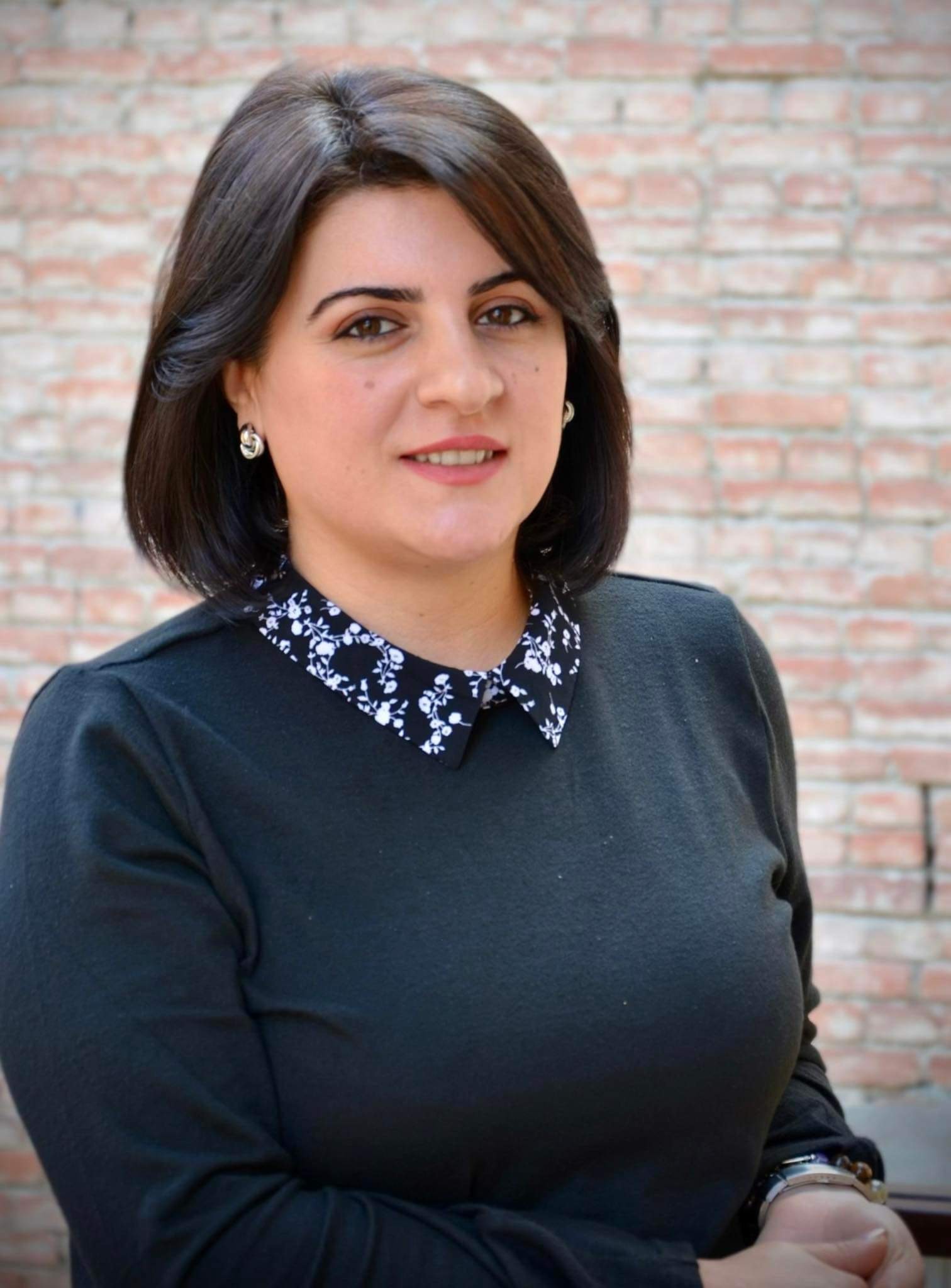
14th of December 2023, 2:00 p.m., Room 1207
The Challenges for the Development of Home Care in Georgia
Speaker: Ia Adeishvili, Georgia, Caritas Georgia. Ia Adeishvili works as Health Care Program Officer for Caritas Georgia. She hold a Master’s Degree in Healthcare Management/Business Administration.
Lecture Content
Problem statement:
Since 2013, the Georgian government has introduced a new state funded Universal Healthcare Program that offers healthcare to the entire population. This program offers various cofunded benefits including primary and secondary medical services and some essential medicines. Meanwhile, the ongoing process of population ageing, poses even hire demand for these services in near future as the number of the elderly will increased from present 14.3% to 21% in 2030 and 25.3% in 20501. On the background of
such changes in the age composition of the society, the health and social care system will face serious difficulties, if urgent measures are not taken. Currently there are about 72.000 persons in need of Home Care service. This number was increased, after the war between Ukraine and Russia, because about 150 000 Ukraine’s came to Georgia, from them 25 000 remained in Georgia. They need different kind of care services. According the decision of Primer Minister of Georgia, dated on 7.07.2023. The piloting of Governmental funded Home Care services will be started from September 2023, but there are different challenges:
- Lack of Care Personal
- Lack of Educational Modules for Care Personal
- High rate of labor migration to the EU countries
- Lack of requalification programs for Nur-ses
- Lack of academic Care Personal in Care Sector.
Caritas Georgia is working closely with partner organizations to participate by the solving this problem in Georgia:
- Translation of Home Care Manuel into Georgian language (supported by DCV -Detuscher Caritas Verband)
- Qualification of Multiplicators working in Home Care sector (supported by Catholic University of Freiburg (PAGEL Program)
- Participation in the different Working Groups to advocate and improve the legislation of long term care.